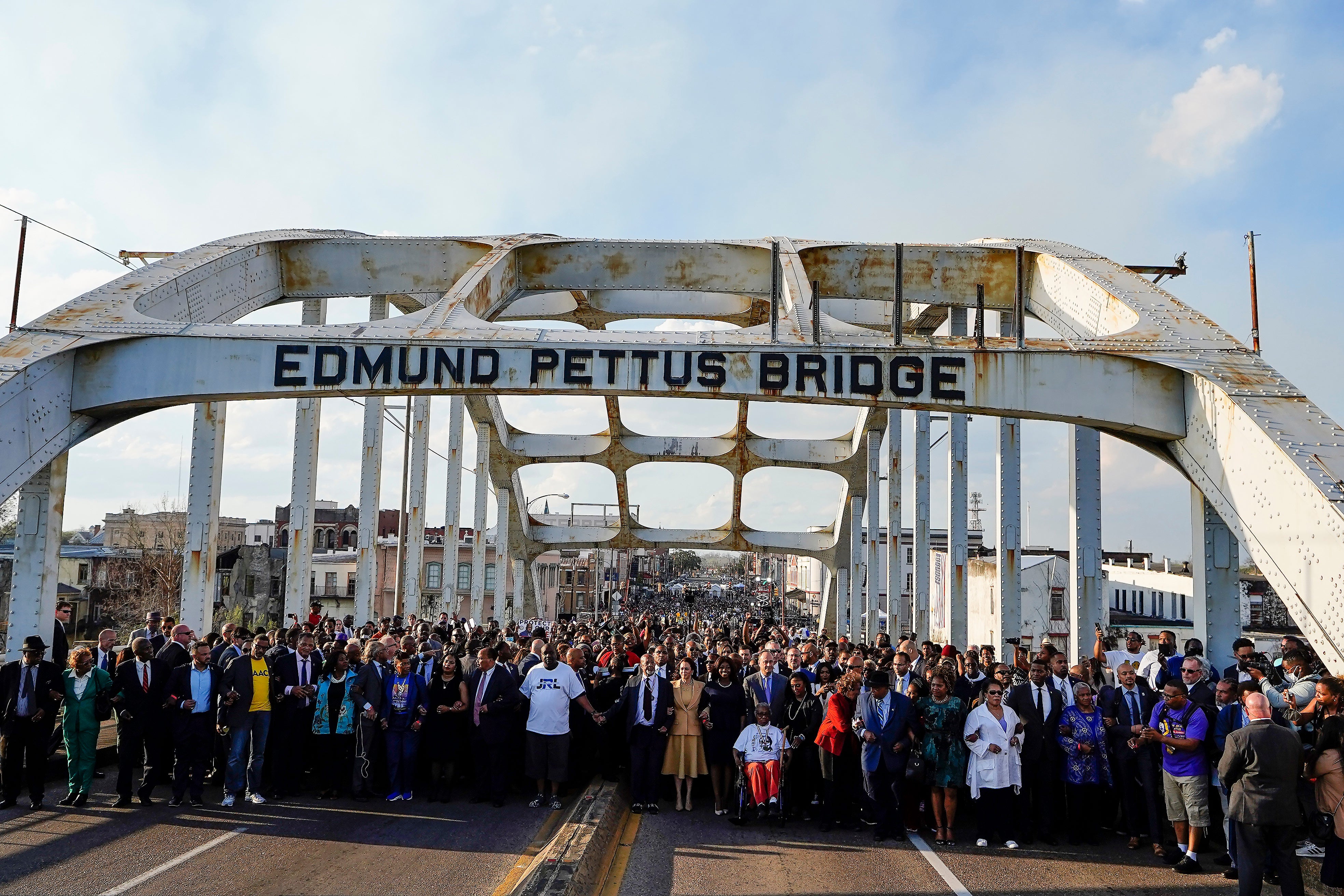Alabama plan advances to alter name of Edmund Pettus Bridge
Alabama lawmakers have advanced legislation to alter the name of Selma’s Edmund Pettus Bridge to honor those beaten as they marched for civil rights in 1965

Your support helps us to tell the story
From reproductive rights to climate change to Big Tech, The Independent is on the ground when the story is developing. Whether it's investigating the financials of Elon Musk's pro-Trump PAC or producing our latest documentary, 'The A Word', which shines a light on the American women fighting for reproductive rights, we know how important it is to parse out the facts from the messaging.
At such a critical moment in US history, we need reporters on the ground. Your donation allows us to keep sending journalists to speak to both sides of the story.
The Independent is trusted by Americans across the entire political spectrum. And unlike many other quality news outlets, we choose not to lock Americans out of our reporting and analysis with paywalls. We believe quality journalism should be available to everyone, paid for by those who can afford it.
Your support makes all the difference.Alabama lawmakers on Tuesday advanced legislation that would alter the name of Selma's Edmund Pettus Bridge to honor those who were beaten on the bridge as they marched for civil rights in 1965.
The Alabama Senate voted 23-3 for legislation that would change the official name to the “Edmund W. Pettus-Foot Soldiers Bridge.” However, the lettering on the famous bridge would remain unaltered. The name “Foot Soldiers” would be on a separate sign that would include a silhouette of the marchers.
The bill, dubbed the “Healing History Act,” now moves to the Alabama House of Representatives with three meeting days remaining in the legislative session.
The bridge in 1940 was named after Pettus, a Confederate general and reputed Ku Klux Klan leader. However, 25 years later it became an enduring symbol of the civil rights movement after marchers were beaten by law enforcement officers on the bridge in 1965. The melee became known as Bloody Sunday and helped lead to passage of the Voting Rights Act of 1965.
“Not a single letter would be touched. It would stay intact in its historical context. And at the same time... honor the history that is there and the history that came out of it,” said state Sen. Malika Sanders-Fortier, a Democrat from Selma.
Through the years some have proposed changing the name of the bridge, including a push to name it for the late U.S. Rep. John Lewis. The Georgia congressman was one of the demonstrators beaten on the bridge in 1965.
Sanders-Fortier said many who marched for civil rights in her community do not want the bridge name changed entirely because of what the bridge has come to represent.
State Sen. Gerald Allen, the author of a state law forbidding the removal and renaming of longstanding monuments and memorials, voted against the name alteration. The Alabama Memorial Preservation Act, was approved as some cities began taking down Confederate monuments and emblems.
Allen said the name of the Edmund Pettus Bridge is famous across the world.
"If you add to it, you change it," Allen said.
The bill also would steer funds to provide for the commissioning and protection of new monuments and the preservation of sites that have significance to Alabama history.
Sanders-Fortier said it is important to honor all of the state's history and “to heal from our past so we can move forward as a state.”
“Many of the events in our state’s history have been traumatizing, been traumatizing to African-American folk to Indigenous folk to white folk," she said, adding that healing means considering the "hurt of each group.”